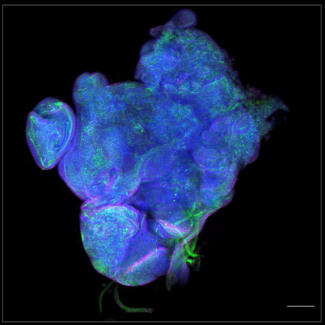
New pharmaceuticals: public research combines efficiency with contained costs
Is the basic research that goes into the development of new drugs more efficiently conducted by public-sector scientists, pharmaceutical firms, or independent private laboratories? What role do each of these groups play in determining prices of innovative pharmaceuticals, which have risen steeply over the last years? To answer these questions, economists Francesca Barigozzi, of the University of Bologna, and Izabela Jelovac, of the CNRS,1 designed and studied a model inspired by game theory.2 In an article recently published in Health Economics, they demonstrate that basic research is most cost-effective when carried out either in a public research laboratory or a pharmaceutical firm. If basic and applied research are highly complementary—where improving the quality of one benefits the other—public research units outperform pharmaceutical companies in the conduct of basic research. Furthermore, the price of new drugs is lowest when basic research takes place in public labs. These findings therefore condition the validity of the economic assumption that greater efficiency in research necessarily results in a more expensive end product.3 In some cases, public-sector basic research is the most efficient and leads to the lowest drug prices.
- 1member of the Groupe d’analyse et de théorie économique Lyon – Saint-Etienne (CNRS/Université Claude Bernard Lyon 1/Université Jean Monnet/Université Lumière Lyon 2/ENS de Lyon).
- 2The three players here are the public authorities, which may subsidize the new drug and provide research funding; the pharmaceutical firm, in charge of applied research and marketing of the drug product; and the laboratory where the basic research was undertaken, which may be a public research unit, a pharmaceutical company facility, or an independent operation, such as a start-up. Negotiations between these parties determines how research is funded and how much the new drug will cost.
- 3This is what occurs when basic research is performed within a pharmaceutical firm.
Research funding and price negotiation for new drugs, Francesca Barigozzi, Izabela Jelovac. Health Economics, 14 June 2020. DOI : 10.1002/hec.4113


